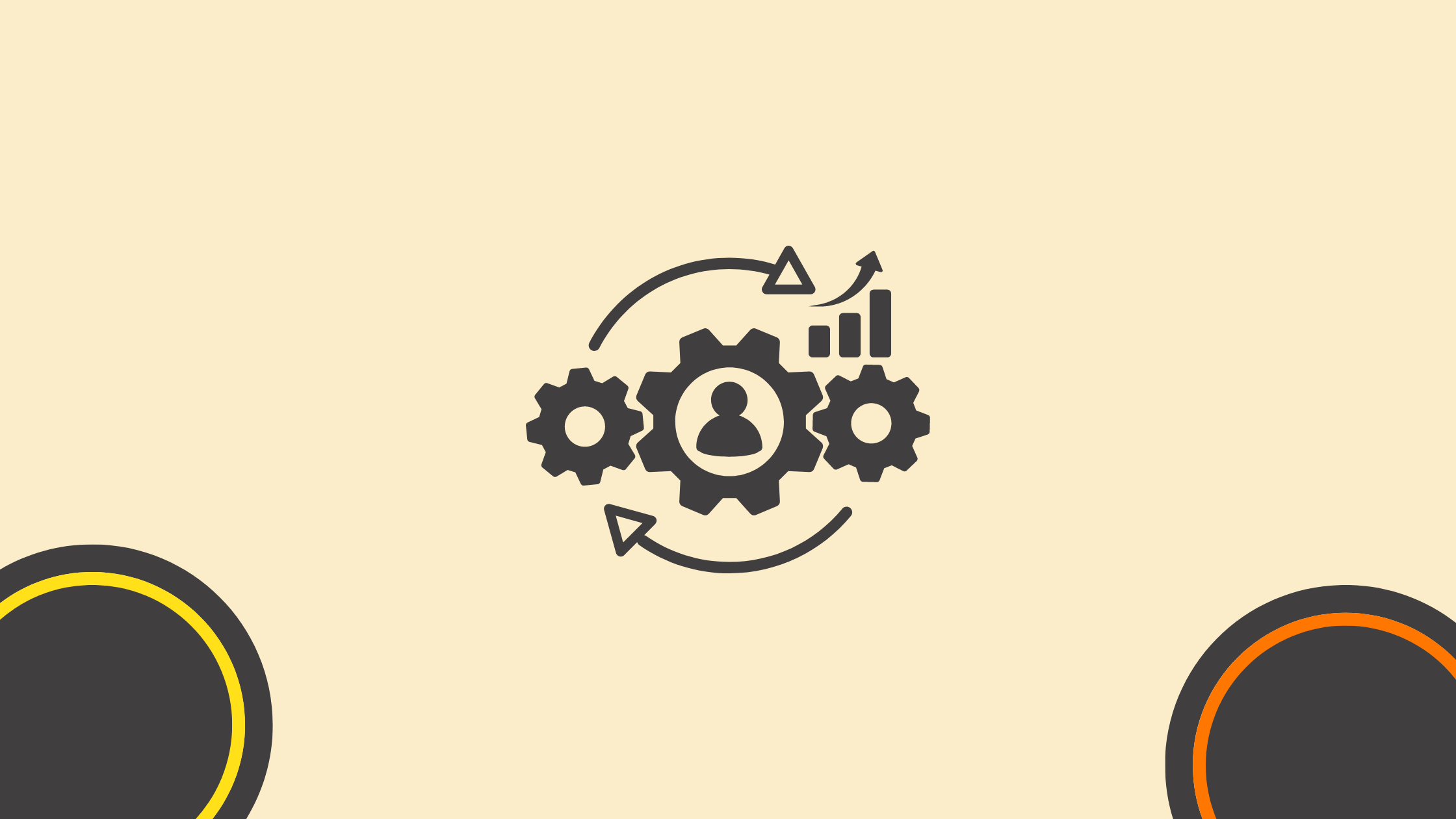Revolutionizing the Workplace: How Emerging Technologies are Transforming Business Operations
Emerging technologies like artificial intelligence (AI) and virtual reality (VR) are reshaping workplaces, enhancing efficiency and creativity. Picture a future where tasks are optimized, habits are learned, and needs are anticipated, all seamlessly integrated into your workday through cloud computing and mobile technology. These changes offer opportunities for growth and development, transforming the business landscape for both companies and employees.
Understanding and leveraging these technologies is essential for staying competitive. Regardless of your role, embracing these advancements equips you to navigate market changes and drive innovation. By embracing change, businesses and individuals can thrive in an era of technological transformation, unlocking new levels of success and productivity.
Chapters
Technologies Shaping the Modern Workplace

The modern workplace is constantly evolving, with groundbreaking technologies enhancing both efficiency and connectivity. Let’s explore the most impactful ones.
Artificial Intelligence and Automation
Artificial intelligence (AI) has become a cornerstone of modern business operations. Your daily tasks may now be assisted by AI algorithms capable of analyzing data trends and automating routine work. For example, AI-powered transcription services like Clipto transcribes your audio and video files to text, streamlining content accessibility and documentation processes. Automation, on the other hand, enables software to perform time-intensive tasks without your direct involvement, freeing you to focus on creative and strategic initiatives.
Internet of Things (IoT) Integration
Internet of Things (IoT) enriches the workplace by connecting everyday devices to the Internet, creating a web of smart, data-sharing tools. Imagine your office environment where conference rooms adjust their temperature based on occupancy or printers automatically ordering supplies when low. IoT optimizes resource usage and fosters an interconnected, efficient work environment, all while delivering insights derived from real-time data.
Cloud Computing and Virtual Collaboration
Cloud computing has become the backbone of virtual collaboration, allowing you to access and share files with colleagues from anywhere in the world. Platforms like Google Drive and Dropbox exemplify how cloud services facilitate remote work. Virtual collaboration tools integrate seamlessly with these platforms, supporting diverse teams to work together in real-time, regardless of location, encouraging a dynamic and flexible work model that is now an industry standard.
Transforming Business Operations

Advancements in technology are not just changing how you work; they’re reinventing the wheel of business processes across the board.
Optimizing Workflow with Technology
By integrating smart tools like artificial intelligence and machine learning, your day-to-day tasks are getting faster and more accurate. Imagine automated scheduling that syncs with everyone’s calendars, a visitor management app that streamlines office entries, and suggests the best meeting times without the back-and-forth emails. Or project management platforms that visually track progress and automate status updates, keeping teams aligned and driving projects forward efficiently.
Here’s a quick look at how technology streamlines workflow:
- Automation: Reduces manual entry and errors
- Collaboration tools: Enhance team communication
- Cloud computing: Offers flexible, on-the-go access to resources
Data Security and Privacy in the Digital Age
As you move to digital platforms, protecting sensitive information becomes critical. Data breaches can be disastrous, but with the right technology, you can shield your business and clients’ privacy effectively. Tools like end-to-end encryption ensure that messages remain confidential, while multi-factor authentication provides an extra layer of security. Data loss prevention software plays a huge role too, by monitoring and controlling data transfer.
Key Data Security Measures:
- Encryption: Keeps your data hidden from prying eyes
- Regular audits: Identifies potential vulnerabilities in your systems
- Employee training: Ensures everyone knows how to handle sensitive information
Sustainable Practices through Tech Innovations
Embracing technology doesn’t just boost efficiency; it paves the road to sustainability. Your business can greatly reduce its carbon footprint by implementing green technologies. Digital documents cut down paper waste, and smart energy systems in office buildings minimize power consumption. Moreover, remote work capabilities can lower commute-related emissions, contributing to a healthier planet. Pioneers like Elysia are at the forefront, revolutionizing battery intelligence and the transportation industry to further enhance sustainability.
Eco-friendly Tech Solutions:
- Paperless operations: Save trees and storage space.
- Energy-efficient devices: Reduce power usage.
- Telecommuting: Lowers travel emissions and operational costs.
Cultural and Organizational Changes
The emergence of new technologies isn’t just reshaping the tools your business uses; it’s also necessitating a shift in the company culture and leadership approach to keep pace with the digital age.
Creating a Tech-Forward Company Culture
Leadership in the Digital Transformation Era
Leadership today is about guiding your team through technological change with a clear vision. As a leader, you must champion the adoption of digital tools and foster a learning environment where employees aren’t just receptive to new technologies but also adept at leveraging them. Your role includes more than managing—it’s about being an inspirational figure who navigates the team through the complexities of the digital landscape with confidence and clarity.
Future Outlook and Challenges
As you look ahead, the integration of cutting-edge technologies within the workplace paints an exciting picture. Artificial Intelligence (AI) and Machine Learning (ML) will likely lead to smarter automation, enhancing productivity. Big Data and analytics are set to refine business strategies further. Additionally, the proliferation of Internet of Things (IoT) devices promises to streamline operations with interconnected work environments. These advancements also extend to the retail sector, where technologies like AI-driven customer service and IoT-enabled inventory management are reshaping the shopping experience. However, these advancements also bring challenges, such as the need for effective retail translation and localization to ensure that customer experiences are tailored to diverse cultural and linguistic preferences.
However, these advancements don’t come without obstacles. A key challenge is cybersecurity, as more devices and data points mean increased vulnerability to attacks. Here’s a snapshot of what the future might hold:
- Skilled Workforce: As new technologies emerge, you’ll find a consistent need for updated skills.
- Privacy Concerns: With more data comes a greater concern for privacy, requiring robust safeguards.
Ethical Considerations: The decisions AI systems make must align with ethical standards and promote fairness.
| Technology | Opportunity | Challenge |
|---|---|---|
| AI & ML | Advanced decision-making and efficiency. | Ensuring transparency and accountability. |
| Big Data & Analytics | Informed business choices and predictions. | Protecting data privacy and integrity. |
| IoT | Enhanced connectivity and insights. | Securing a myriad of IoT endpoints. |
Facing these challenges head-on requires cooperation across industries and, perhaps, revising regulations. As businesses adapt, your role becomes pivotal in shaping an inclusive and secure digital workplace for the future. Remember, with every technological leap, new horizons and hurdles arise. Embrace the change, but stay vigilant about the potential pitfalls.
Conclusion
The integration of emerging technologies is fundamentally reshaping business operations, offering unprecedented opportunities for growth, efficiency, and sustainability. As we navigate this transformative era, it’s crucial to understand and leverage these advancements to stay competitive and drive innovation. By embracing change and addressing challenges such as cybersecurity and workforce skill development, businesses can thrive in a tech-forward landscape, ushering in a future of enhanced productivity and success.
Author Bio
 I’m Erika Balla, a Hungarian from Romania with a passion for both graphic design and content writing. Following the completion of my studies in graphic design, I discovered a second passion in content writing, particularly in crafting well-researched, technical articles. I derive joy from dedicating hours to reading magazines and collecting materials that inspire the creation of my articles. What sets me apart is my love for precision and aesthetics. I am committed to delivering high-quality content that not only educates but also engages readers with its visual appeal. I bring a unique perspective to my writing, actively immersing myself in this field to produce articles that illuminate complex concepts and present them in a clear and accessible manner.
I’m Erika Balla, a Hungarian from Romania with a passion for both graphic design and content writing. Following the completion of my studies in graphic design, I discovered a second passion in content writing, particularly in crafting well-researched, technical articles. I derive joy from dedicating hours to reading magazines and collecting materials that inspire the creation of my articles. What sets me apart is my love for precision and aesthetics. I am committed to delivering high-quality content that not only educates but also engages readers with its visual appeal. I bring a unique perspective to my writing, actively immersing myself in this field to produce articles that illuminate complex concepts and present them in a clear and accessible manner.
Other interesting articles
- Boosting Member Retention Through Innovative Digital Outreach
- Resignation Letter Story: Lessons Learned from Leaving a Job on Good Terms
- How to Write a Digital Marketing Strategy Paper for Students
- Lead Generation and Appointment Setting in the Age of In-Boxing
- Overhaul Your Customer Service with AI, Self-Service, and Clear KPIs
- Why Data Integration is the Key to Smarter Marketing Decisions?
- Elevating Brand Engagement with Smart Communication Tools
Master the Art of Video Marketing
AI-Powered Tools to Ideate, Optimize, and Amplify!
- Spark Creativity: Unleash the most effective video ideas, scripts, and engaging hooks with our AI Generators.
- Optimize Instantly: Elevate your YouTube presence by optimizing video Titles, Descriptions, and Tags in seconds.
- Amplify Your Reach: Effortlessly craft social media, email, and ad copy to maximize your video’s impact.